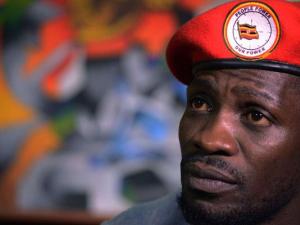
How will East Africa's opposition fare in 2019?
The year 2018 has been one of the worst years for opposition parties in East Africa, as governments cracked down on their operations. The New Year doesn’t promise to be much different.
While opposition parties in South Sudan, Rwanda and Burundi only exist in name, those in Kenya, Tanzania and Uganda are degenerating.
Harold Acemah, a retired Ugandan diplomat told The EastAfrican that 2018 was a bad year, not only for the opposition, but for all citizens due to a small and greedy ruling class in the region.
“The bitter truth is that what is at stake is the security of ruling political parties and ruling cliques,” he said.
In Kenya, Raila Odinga, the leader of the Orange Democratic Party, virtually killed the opposition when he decided to enter into a working relationship with President Uhuru Kenyatta in March last year.
The ruling party, Jubilee, is now virtually unopposed because other opposition leaders such as Kalonzo Musyoka of the Wiper Democratic Movement, Musalia Mudavadi of Amani National Congress and Moses Wetang’ula of Ford Kenya lack the capacity to mobilise support to put checks on the government.
For instance, Mr Mudavadi, who has been trying to convince Kenyans that he is the only remaining opposition voice, often oscillates between condemning corruption in the government and supporting the “handshake.”
The National Super Alliance, which comprises Mr Odinga, Mr Musyoka, Mr Mudavadi and Mr Wetangula, provided a strong challenge to Jubilee in the 2017 elections but it has now virtually collapsed.
Nairobi lawyer Gitobu Imanyara — who was part of the group that fought for the reintroduction of political pluralism in the early 1990s — told The EastAfrican that the opposition as an instrument of governance is non-existent.
“In Kenya, what we have are losing parties who, immediately after elections, begin the process of joining the government ‘for the sake of development’ rather than consolidate ideological frameworks that offer the electorate a long-term alternative in future elections,” he said.
Mr Imanyara said there was a more effective opposition voice during the one party rule under the Kenya African National Union era than there is today.
Opposition outlawed
In Tanzania, the proposed amendments to the Political Parties Act threaten to officially outlaw opposition activities, as part of a crackdown started when President John Magufuli came into power in 2015.
The amendment proposes to ban political parties from operating as pressure groups or from receiving financial support from foreign donors; the minister responsible for good governance will prescribe how political coalitions are set up; and the Bill requires anyone wishing to conduct civic education or capacity building training for a political party to seek permission from the Registrar of Political Parties.
In 2016, President Magufuli banned opposition rallies outside of election campaign time, which has led to the arrest of several opposition leaders.
“President Magufuli started well, but I am afraid he appears to be going astray just like his colleagues in Uganda, Rwanda and Burundi. East Africans deserve better,” said Mr Acemah.
There have also been several defections to the ruling Chama cha Mapinduzi (CCM), after Edward Lowassa — who contested the 2015 elections under the Ukawa Coalition ticket — made a truce with President Magufuli in January 2015.
With the vocal Tundu Lissu still recovering abroad after he was shot in October 2017, the most vocal opposition leader in Tanzania now is Zitto Kabwe, the ACT-Wazalendo Party leader. Chadema’s leader Freeman Mbowe is in remand.
Enemies of the state
Uganda’s opposition finds itself in a similar plight with President Yoweri Museveni on the warpath against the new opposition firebrand Robert Kyagulanyi, commonly known as Bobi Wine. The musician turned politician was arrested several times in 2018 and most of his planned music concerts were cancelled.
Mr Acemah said that in Uganda, the opposition are treated as enemies of the state or even terrorists, with national security used as a pretext by the ruling class to harass and jail opposition leaders.
“Many African leaders are driven by fear and ignorance. Political parties are the building blocks of a modern democracy and leaders in the region should support and encourage opposition parties,” said Mr Acemah.
Leading Ugandan opposition leader Kizza Besigye appears to have slowed down after years of harassment and physical assaults by security agencies.
Exiled
In South Sudan, a civil war, which entered its fifth year in December last year, has prevented opposition parties from taking part in any political activities, with most of their leaders in exile.
Apart from the war, the ruling party, the Sudan People’s Liberation Movement has maintained a stranglehold on the country’s politics since Independence in 2011.
In Burundi, the entire opposition is living in exile after the crackdown that followed the 2015 coup attempt. Having scrapped the 2000 Arusha Accord, which assured the existence of opposition groups and power rotation, President Pierre Nkurunziza is operating a de facto one-party state, where dissent is not tolerated.
The only opposition leader in Burundi, Agathon Rwasa, decided to co-operate with the ruling CNDD-FDD after the 2015 elections and was made the deputy Speaker of parliament. Occasionally, he expresses fear for his life.
In Rwanda, 2018 was a historic one for the opposition after two members of the Democratic Green Party of Rwanda — the only registered opposition party — won two seats in parliament in September.
